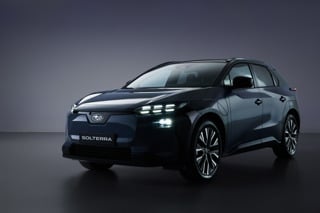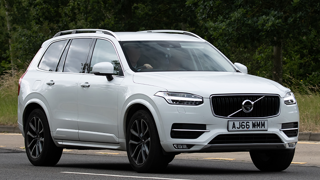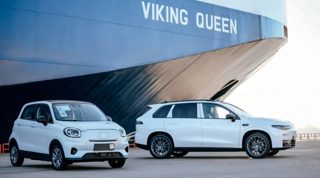The European Commission has today officially imposed anti-subsidy duties on electric vehicles (EV) imported from China, forcing manufacturers to put aside funds to pay for the tariff hikes.
On June 12, the European Commission announced that it would apply provisional countervailing duties on Chinese-made EVs based on the results of its nine-month investigation into the levels of state subsidies received by different Chinese or China-based carmakers. This unfair support, it believes, results in hefty distortions in the European market.
The move by the Commission followed a May 14 declaration by the United States which said it will increase tariffs on Chinese EVs and certain hybrids to 100% from August 1.
The European Commission has today officially imposed anti-subsidy duties on electric vehicles (EV) imported from China, forcing manufacturers to put aside funds to pay for the tariff hikes.
On June 12, the European Commission announced that it would apply provisional countervailing duties on Chinese-made EVs based on the results of its nine-month investigation into the levels of state subsidies received by different Chinese or China-based carmakers. This unfair support, it believes, results in hefty distortions in the European market.
The move by the Commission followed a May 14 declaration by the United States which said it will increase tariffs on Chinese EVs and certain hybrids to 100% from August 1.
The new European duties, which are set to be added to the existing 10% tariff, will apply to BYD: 17.4%; Geely: 19.9% - revised down from the provisional 20%; and SAIC: 37.6% - revised down from 38.1%.
Other EV manufacturers in China, which cooperated in the investigation but were not sampled, are subject to the 20.8% weighted average duty. The duty for other non-cooperating companies is 37.6%.
The investogation has four more months to run at which point the Commission may propose definitive five-year duties. EU member states will still need to vote those through, however. Meanwhile, their enthusiasm for the measures will soon be tested as part of an imminent advisory vote which will indicate the level of support for additional tariffs.
In its statement, the European Commission highlighted its willingness to engage in further technical discussions with China to find a 'mutually acceptable solution'.
The imposition of these duties will have repercussions for dealers and repairers selling Chinese EVs through higher prices and, consequently, impact sales volumes, according to Bernard Lycke, director general of CECRA, the industry body which represents European vehicle dealers and repairers.
Both sides have reportedly agreed to restart tariff talks after a call between EU commissioner Valdis Dombrovskis and Chinese commerce minister Wang Wentao on June 29 during a visit to China by Germany’s economy minister, who said the doors for discussion are “open”.
Meanwhile, nearly two-thirds of people believe the UK should follow suit and impose tariffs on Chinese electric car manufacturers. according to a recent Startline which revealed that 43% of those surveyed think the UK needs to protect its domestic car manufacturers. Other industry experts suspect the UK mnaufacturing base could actually find itself in a win-win situation in light of the many industry partnerships with China.
Germany however is particularly keen on negotiating a deal, fearing that any retaliatory measures by China could hit exports.
Federation of German Industries (BDI) president Siegfried Russwurm said that “as long as we don’t get into an escalation that comes close to a trade war between now and 4 July and thereafter, something would already have been gained”.
VW Group has already said that tariffs would exacerbate the current weak demand for EVs in Germany and Europe and that the fallout from imposing additional tariffs would damage European manufacturers 'especially the German automotive industry'.
Ian Plummer, commercial director of Auto Trader, told AM: “Tariffs are bad news for consumers so we can only hope that the EU and China can agree a deal before November to prevent these provisional tariffs becoming permanent. The UK should also resist the temptation to follow the EU’s lead.
"Drivers already face a lack of affordable choices when it comes to electric cars, so it doesn't make sense for us to limit those options even further for consumers.
'We need to bring more buyers into the market by cutting down the 'green premium' - which means EVs are usually 35% more expensive than diesel or petrol cars. We'll only do that with open competition to foster innovation, not by reducing choice.”
Read Auto Trader flags critical role of affordability, discounting in EV adoption
Login to continue reading
Or register with AM-online to keep up to date with the latest UK automotive retail industry news and insight.




















Login to comment
Comments
No comments have been made yet.